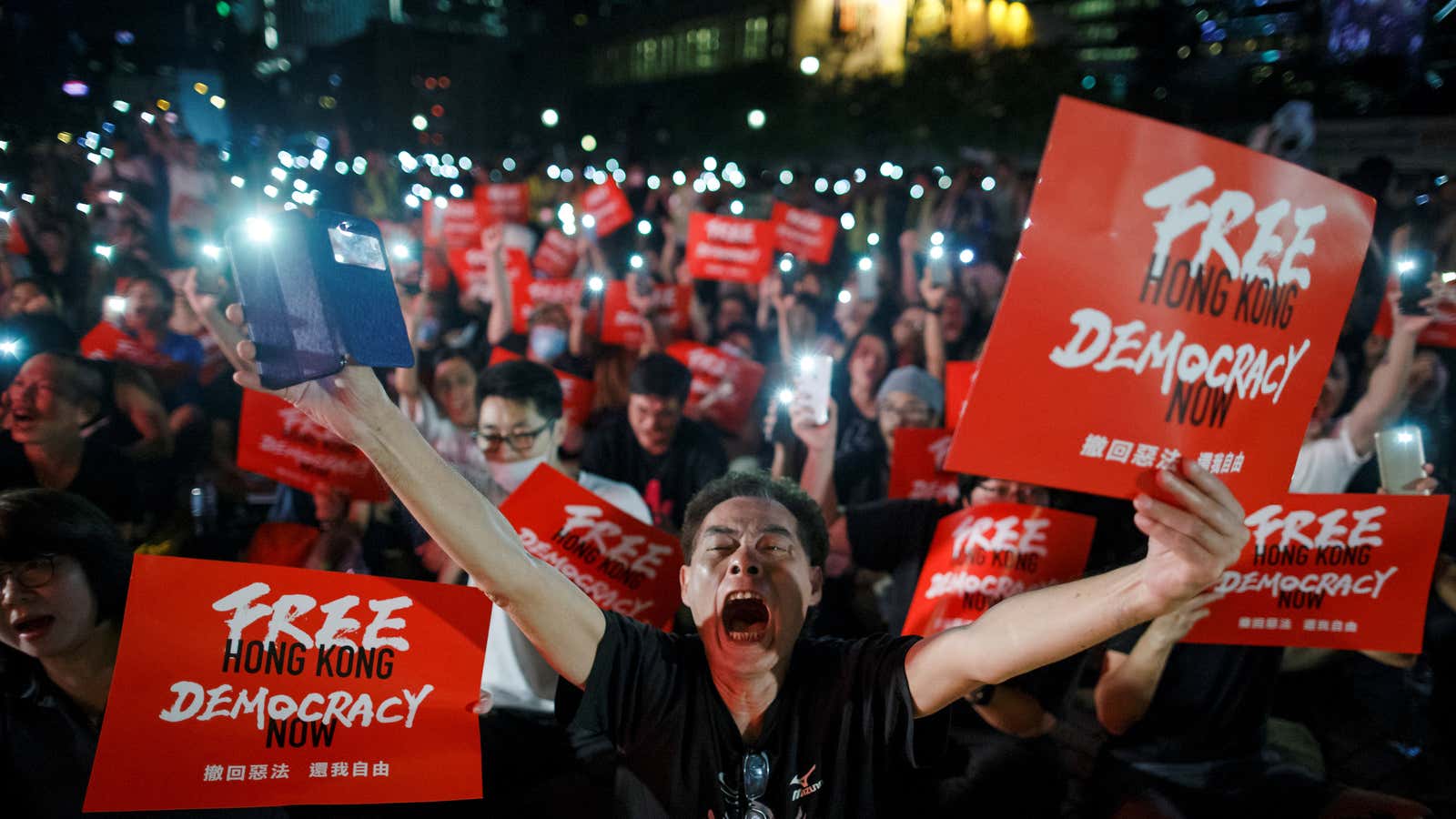For decades, China has tried to bring Hong Kong closer into its orbit economically, politically, and physically. The city’s legislature is stacked with Beijing-friendly politicians; major multi-billion-dollar infrastructure projects link the city with the mainland, and mainland Chinese enterprises account for more than two-thirds of the market capitalization on the local stock exchange.
But, by all accounts, China has so far failed at winning over the hearts and minds of the local populace.
Data released yesterday (June 27) by the University of Hong Kong’s public polling unit confirms what many have seen on the streets in Hong Kong in recent weeks, as millions turned out to the streets against a planned extradition law: widespread distrust and disdain of Communist-ruled mainland China. Telephone poll results from a survey of 1,015 people showed the proportion of citizens identifying as “Hongkongers” reached a record high of 53%, while the proportion identifying as “Chinese” slumped to an all-time low of 11%, with the remaining 36% identifying as a mix of both. Other options for people’s choice of identity include “Asians,” “global citizens,” “members of the Chinese race,” all of which ranked higher than “Chinese” in terms of the strength and importance of that identity. Only “citizens of the People’s Republic of China” ranked lower.
Hong Kong was handed over to Chinese sovereignty in 1997 from British rule, and since then has enjoyed a high degree of political and judicial independence under a setup known as “one country, two systems.” Citizens enjoy robust civil liberties that are unheard of in mainland China, but many say that Beijing has steadily eroded many of those liberties over the year.
As China has tigtened its grip on Hong Kong, Hong Kongers’ sense of identity as distinct from that of their mainland Chinese counterparts has crystalized, revolving around key ideas of freedom and democracy, but also more intangible things like the Cantonese language. A recent column penned by a Hong Kong student at a US college—titled “I am from Hong Kong, not China“—and the ensuing backlash she faced from mainland Chinese students as a result, paints the battle lines clearly.
On July 1, Hong Kong will mark the 22nd anniversary of its handover to China. The day, however, has become an annual opportunity for citizens to protest for democracy and freedoms, and this year may well see a record turnout following the momentum of the past few weeks. Already, protesters have co-opted imagery from Chinese Communist Party propaganda to urge people to hijack and disrupt the flag-raising ceremony, during which both the Chinese and Hong Kong flags are honored, and to drown out the Chinese national anthem (link in Chinese) by singing rival anthems from different countries.
